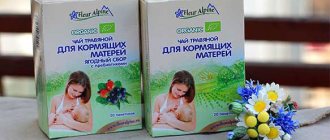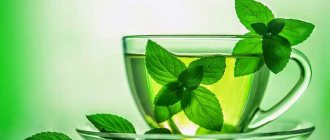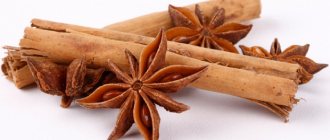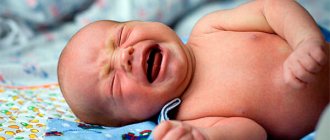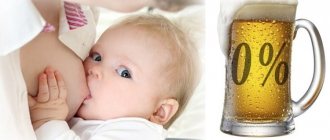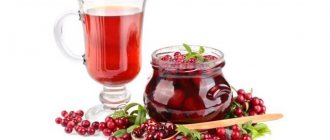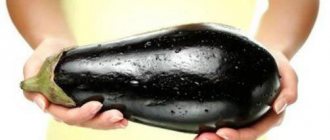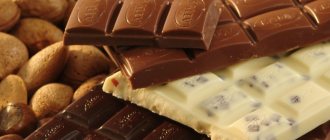Lactation is a period in a woman’s life that completely changes her usual routine. It will be possible to provide your baby with breast milk for a long time only if all the basic rules of nutrition and drinking regime are followed. It is allowed to eat only healthy foods that will not cause excessive gas and colic in the baby. What can a nursing mother drink? After all, she should consume at least two liters of liquid per day. Today there is a wide range of products in this group in any store. Naturally, you should completely avoid alcoholic beverages.
When breastfeeding, you should be concerned about a balanced diet. Only in this case will the baby be able to develop correctly.
How does breastfeeding depend on fluids?
Until recently, women were advised to drink more fluids. Through this action, it was possible to achieve an increase in the volume of breast milk. Subsequent studies have not confirmed this theory. At the same time, it was possible to establish that the liquid has a positive effect on the formation of milk in a woman’s body.
The process is controlled by a hormone (oxytocin). It also depends on the woman’s mood and the ambient temperature. For example, all drinks are best drunk warm.
Lactation increases with water consumption due to stimulation of the glands
Drinking water for a nursing mother
Water is one of the main components of the entire human body. Therefore, during breastfeeding, when a large amount of fluid is used to produce milk, it is extremely important to replenish water reserves. And although the amount of water you drink does not in any way affect the process of milk formation, you should not neglect the recommendations of doctors and limit yourself to the amount of liquid you drink.
Milk production is affected only by the hormone prolactin, which is formed in a woman’s body only during nipple stimulation. This happens during the period when the baby is attached to the breast or during the process of expressing with a breast pump or manually. But drinking enough water throughout the day helps the nutrient fluid to be released from the body easily and quickly.
A nursing mother should drink at least 1.5 liters of clean water per day, excluding juices, tea and other drinks and liquid dishes
What kind of water can you drink?
Today on the shelves of stores and pharmacies you can see a wide variety of different waters: regular, mineral, table, medicinal, with different flavors, as well as carbonated or still. But a nursing mother needs to carefully choose the liquid to drink so as not to cause problems for the baby. During lactation, you are allowed to drink purified or mineral, still water.
You should not drink medicinal mineral water. Such a product contains a certain concentration of minerals and other elements that may not be absorbed in the baby’s body, causing colic or indigestion.
It is also recommended to avoid carbonated water. Mineral water is artificially saturated with gas in order to extend the shelf life of the drink for a longer time. Once in the body, gases cause excessive secretion of gastric juice, resulting in increased acidity. If this happens constantly, the gastric mucosa becomes inflamed and gastritis develops, then peptic ulcer. In most cases, when the mother drank carbonated water, the baby experienced problems with the gastrointestinal tract: colic, indigestion, increased gas formation in the intestines.
Many women, on the recommendation of a gastroenterologist, drink Borjomi mineral water. This product is a table-medicinal product, i.e. it can be used not only during treatment, but also for prevention. During the GW Borjomi you can drink, but after releasing the gases. To do this, you need to leave the bottle open for ten to twelve hours. It is worth remembering that you can drink this water as a course, for example, for 30 days, then take a break for 60 days.
Doctors recommend following these rules when choosing water for nursing mothers:
- Before purchasing, be sure to read the instructions. Particular attention should be paid to the amount of sulfates in the composition, they should be less than 10 mg/dm3;
Water with a high content of sulfates is extremely dangerous for a child and a nursing mother. The fact is that when it is consumed, the body does not absorb calcium. And this element must necessarily enter the body of both the woman and the baby.
- if you have a history of diseases of the gastrointestinal tract, kidneys, liver in a chronic or acute form, it is recommended to consult a doctor about whether you can drink mineral water;
- observe the drinking regime, without abusing mineral water, especially therapeutic and prophylactic water.
Video: is carbonated mineral water good for the body?
Required volume
Breastfeeding a baby is a process that requires a woman to consume at least two liters of healthy fluid per day. The volume can be increased to 2.5 liters in the hot season, when sweat production increases.
The metabolic process proceeds normally if a person drinks 800 ml of liquid per day. Otherwise, the situation is dangerous due to dehydration. The body will report this through a feeling of thirst.
A mother can produce up to 1.5 liters of breast milk during the day. Deviations from the indicator are observed depending on the age of the woman who gave birth. To produce it, you must adhere to the basic drinking rules. Otherwise, you can even record the cessation of lactation for a certain period.
Thanks to this process, the woman will not suffer from tissue dehydration. That is why, after the baby is born, all physiological processes work to restore previous strength.
It is typical for a woman to feel very thirsty immediately after the baby is born. In this way, the body tells the woman that it is urgent to replenish the balance of the missing component. Otherwise, negative processes may arise that can adversely affect not only the health of the mother, but also the child.
Drinking regimen during breastfeeding
The older generation has long adhered to the theory that during breastfeeding it is necessary to drink as much liquid as possible: this affects the amount of milk. However, modern medicine refutes this statement, but does not deny that in order to maintain lactation at the proper level, a woman must not only eat a balanced diet, but also maintain a drinking regime.
There are situations when a young mother is faced with lactostasis, the cause of which is too thick milk: it is difficult for it to move through the ducts to the nipple. Nutrient fluid in this form is difficult for the baby to obtain during sucking. Therefore, a sufficient amount of fluid must enter the woman’s body during breastfeeding.
A nursing mother should adhere to the drinking regime
How much should a nursing mother drink?
Breast milk consists of almost 90% water. Although water does not directly affect the amount of milk produced, it replenishes the deficiency of fluid that the body uses to form nutrition for the baby. Scientists have found that for the normal functioning of organs and systems, a woman must drink at least one to two liters of fluid per day. However, during breastfeeding, the amount must be increased to two and a half to three liters.
During established lactation, the body of a nursing mother produces and secretes a liter and a half of milk to feed the baby. Therefore, doctors recommend drinking at least three liters of fluid. Half of this amount should be in the form of ordinary water, the rest can be replenished with broths, juices or other drinks.
Experts recommend that nursing mothers primarily focus on their personal feelings: if a woman is thirsty, she needs to drink water or tea, but you shouldn’t specifically force yourself to take a few sips of liquid. The same applies to limiting the drinking regime: many young mothers try not to drink liquid at the stage of lactation, when the flow of milk causes discomfort and pain in the mammary glands. However, this will not help reduce the amount of milk produced, but will only make it thicker, which can lead to stagnation in the milk ducts.
What can a nursing mother drink in the first and subsequent months after childbirth?
Doctors have still not come to a consensus. Some experts insist that foods and drinks included in the diet of a nursing mother do not affect the baby in any way. Others, on the contrary, are sure that the baby’s body and the still unformed gastrointestinal tract can react negatively to certain dishes. Most often, the child experiences an allergic reaction, redness of the skin, problems with digestion and absorption of breast milk.
Much depends on the individual characteristics of the baby’s body. Pediatricians advise introducing new drinks gradually, observing the baby’s reaction. Some mothers do not adhere to a special diet from the first month after the birth of their child, while others eat only hypoallergenic foods for fear of harming the baby.
During lactation, you can drink not only water, but also juices, compotes and fruit drinks.
Table: what drinks can a nursing mother drink depending on the age of the child
| Baby's age | Can be included in the mother’s menu as the child grows older | It is not recommended to drink such drinks while breastfeeding |
| 1 month |
|
|
| 2 months |
| |
| 3–4 months |
| |
| 5–6 months |
| |
| 7–9 |
| |
| 10–12 |
|
Video: menu for a nursing mother
High alcohol drinks
What drinks should you not drink while breastfeeding? First of all, all experts advise giving up alcohol. It passes into breast milk within just 30 minutes.
The permitted list of products does not allow alcohol consumption
The alcoholic product remains in the human body for three hours. The overall period depends on external and internal factors. For example, as the volume increases, the period required to digest and remove waste products from the body also becomes longer.
Drinking alcohol is harmful for a child, because the process negatively affects the formation of internal organs.
We recommend reading: Is kvass ok while breastfeeding?
The harmful effects of strong drinks are beyond doubt. The possible negative effect is too dangerous. A woman should be aware of the following negative effects on the body:
- The danger of alcohol lies in the fact that the baby’s body is not yet able to completely digest it.
- If the baby is not yet three months old, then the strong drink will take a very long time to leave his body. The situation is dangerous due to severe poisoning, even if only one glass of wine is drunk.
- Everyone knows that the less a person weighs, the longer it takes for alcoholic drinks to be eliminated from him. This is why toxins remain in it for a long period of time.
After the penetration of a strong drink into the body, the following negative reaction is observed in the baby:
- general weakness throughout the body;
- sleep becomes too deep;
- breathing occurs with difficulty;
- sleep and general lethargy.
What does regular consumption of alcoholic beverages in large quantities mean for a child:
- The child is behind in weight gain.
- Over time, there is a lag in physical and psychological development.
- During breastfeeding, you can clearly see the inhibition of the sucking reflex.
- The child's time to fall asleep becomes short. During sleep, eye movements can detect too rapid changes in stages. The child does not get enough sleep because he does not have a deep sleep phase.
- Among the inflammations, improper functioning of the intestines or esophagus may occur. The child will constantly have poor appetite, which is accompanied by rumbling in the stomach.
- Weakness of the body leads to complications in the form of low blood pressure, which leads to deterioration of heart function.
What should a nursing mother drink? Lactation drinks
The drinking regime of a nursing mother, along with a properly composed daily menu, is an important link in the formation of full lactation.
How much should a nursing mother drink?
Until recently, there was an opinion that a nursing mother should drink as much fluid as possible in order to produce a lot of milk.
Currently, breastfeeding specialists and pediatricians argue that milk production is a hormone-dependent process and is regulated by two pituitary hormones - prolactin and oxytocin. And excess fluid not only does not stimulate lactation, but can lead to the opposite effect - its reduction.
When a nursing mother drinks excess fluid, the production of the hormone oxytocin, which controls the process of milk secretion from the breast, decreases. If little oxytocin hormone is produced, then even if there is milk in the breast, it is difficult for the baby to suck it out, which often leads to the formation of lactostasis. In addition, a large amount of fluid puts increased stress on the kidneys of a nursing mother, which can lead to health problems.
How much should a nursing mother drink? The best clue in this matter is thirst. A woman should drink so much fluid that she does not feel thirsty, that is, by choice, and not by force. WHO recommendations on breastfeeding say that for stable lactation, a nursing mother needs to drink about 2–2.5 liters per day. On the 3rd–4th day after birth, when milk is coming in, it is recommended to limit fluid intake to 800 ml - 1 l/day.
What should a nursing mother drink?
The best drinks for nursing mothers are water, compotes, fruit drinks, tea, fermented milk products (drinking yogurt, kefir, yogurt, fermented baked milk).
Water is the simplest and most common drink. For drinking, it is recommended to use bottled, filtered or boiled water.
Compotes and fruit drinks are one of the healthiest drinks for a nursing mother, as they contain many vitamins and microelements. Homemade compotes and fruit drinks are considered the most useful. Store-bought products contain a lot of sugar, dyes and preservatives, which can negatively affect the baby’s health.
At first, it is better to brew one-component fruit drinks or compotes, that is, the drink should be prepared from one type of fruit or berry. This is necessary so that if an allergic reaction occurs in a child, it is possible to determine which component the baby’s body reacted negatively to.
Cranberries, lingonberries, blueberries, red or black currants are suitable for preparing fruit juice. For compotes, it is recommended to use fresh or dried apples, pears, apricots, cherries or cherries. Exotic fruits such as dates or figs can cause unexpected digestive system reactions or allergies.
For the same reason, you should avoid adding citrus fruits to compote.
If the child does not have allergic manifestations, you can gradually add a second type of berries, etc. It is important to remember that fruit drink should not be highly concentrated and you should start drinking the drink with small volumes. The same rule applies to compotes.
Freshly squeezed juices are highly allergenic products and can cause an allergic reaction in the baby, so it is better for women to refrain (or limit) from consuming them during lactation. Juice from green apples, pears, apricots and cherries has the least allergenic properties. Juices from exotic fruits (mango, papaya, grapefruit), orange and strawberries should not be drunk by a nursing mother due to their high allergenicity. We should not forget that juices must be diluted by half with water before consumption.
Controversial question: can a nursing mother drink coffee and cocoa?
One of the most controversial and discussed topics among nursing mothers is the question of whether it is possible to drink coffee and cocoa while breastfeeding.
Coffee contains caffeine, which is dangerous because it has a stimulating effect on the central nervous system, and the child may experience increased excitability, restless behavior, irritability and sleep disturbances. If a nursing mother really wants to drink coffee, then it is better to do it in the first half of the day and immediately after she has breastfed the baby. Then, before the next feeding, caffeine will be cleared from her body and will not have an effect on the baby.
If a mother is afraid to drink coffee because of possible disorders in the baby (allergic rash, nervous system disorders), special coffee drinks that do not contain caffeine can serve as an alternative. They are prepared on the basis of plants - chicory, barley or rose hips. A nursing mother should introduce these drinks into her menu carefully and gradually, observing the baby’s reaction.
Cocoa is on the list of highly allergenic products and can provoke an allergic reaction in a child. In the first months of a baby’s life, when his intestines are not yet mature enough to retain allergens from mother’s milk, a nursing woman is not recommended to consume highly allergenic foods and drinks, including cocoa. In the future, if the baby does not have allergies, the mother can prepare cocoa for herself if she wishes. At first, you can drink it in small quantities, observing the child’s reaction.
It is advisable to consume cocoa no more than 2 times a week, in the morning, immediately after feeding the baby.
Nursing mothers who like to pamper themselves with a cup of freshly brewed black tea should remember that the tea should not be strong.
Strongly brewed tea or a cup of tea drunk at night can have a stimulating effect on the mother’s nervous system, cause her tachycardia, excite the baby, and disturb his sleep. The best option for a nursing mother may be to drink weak green tea daily. Green tea contains many beneficial substances for the body - antioxidants. In addition, it has lactogenic properties, that is, it promotes milk production.
What should a nursing mother not drink?
During lactation, a nursing mother is prohibited from drinking alcoholic beverages (including beer and wine). Alcohol passes into breast milk very quickly, and even a small dose of alcohol can negatively affect the baby's health.
Also, a nursing mother is not recommended to drink carbonated drinks. They contain a lot of dyes, preservatives, and a large amount of sugar, which is not beneficial for either mother or baby. In addition, carbon dioxide contained in carbonated water causes belching and bloating (flatulence).
When is the best time for a nursing mother to drink?
Typically, breastfeeding women become thirsty when breastfeeding begins. This is due to the fact that the active production of the hormone oxytocin causes the mother to feel thirsty. Therefore, you should make sure in advance that during feeding you always have a cup of your favorite drink on hand.
Many or few?
The drinking regime of a nursing mother in the first days after childbirth is somewhat different from the drinking regime during established lactation. This is due to the fact that, as a rule, on the 3rd–4th day after birth, the arrival of milk is noted.
Some young mothers try to drink a lot of fluids during this period to increase their milk volume. In this case, you can get the opposite result - not an increase, but a decrease in the amount of milk.
The opposite situation, when a nursing mother drinks little to avoid a sudden flow of milk and painful breast engorgement, is also wrong. In this case, she may experience dehydration and lactostasis (the amount of milk remains the same, but due to a lack of fluid, it becomes more viscous, and it is difficult for the baby to suck it out of the breast).
No mistakes!
✔ There is a misconception that in order to increase breast milk production, a nursing mother must regularly drink whole cow's milk. Mother's consumption of cow's milk does not have any positive effect on lactation, but on the contrary, it can harm the baby. This is a highly allergenic product that contains many foreign proteins that can cause allergic reactions in the baby. In addition, scientific research has proven the connection between attacks of pain in the intestines (colic) in a baby and the consumption of cow's milk by the mother. Therefore, it would be more correct to completely stop drinking whole cow’s milk while breastfeeding your baby.
✔ Tea with condensed milk, which nursing women are often advised to drink, also does not cause an increase in the amount of milk, and due to the large amount of sugar it can provoke allergic reactions (dermatitis) in the baby.
✔ You also need to be careful when using herbal infusions as a drink. Do not forget that although these are natural substances, they have a healing effect. Each of them has its own indications, contraindications and side effects. Their prolonged use without a doctor's prescription can harm the body of a nursing mother.
Low alcoholic drinks
Some mothers are confident that a few sips of beer will not harm them. On the contrary, in this way it is possible to increase the volume of milk produced several times. This statement is not true.
On the contrary, any alcoholic drink reduces lactation. Today, there is a large number of scientific studies that are further confirmation of this. They also negatively affect the taste of milk, so the baby may refuse it altogether. The taste and smell of food is important for babies.
How important is water for a woman?
Water is the key to the life and well-being of any woman. With its help, all metabolic processes occur in the human body. The liquid is used for proper heat exchange and dissolution of substances.
Every human tissue contains fluid, the volume of which must be regularly replenished. During breastfeeding, you can drink mineral water without gas or clean drinking water.
Soda should be excluded, as it can cause increased gas formation in the baby's intestines. Water from a spring or well will also benefit your mother. It is important to be completely sure of its purity.
At home, a filter should be used to purify water. Liquid that flows through pipes into our taps without additional purification is strictly prohibited from drinking. A woman should drink at least eight glasses of water within 24 hours.
Features and principle of drinking juices
Juice is beneficial during breastfeeding. However, you should be completely confident in its naturalness. When introducing it into the diet, you should adhere to the basic rules, because berries and fruits quite often cause allergies in the baby. Apple juice is considered the most harmless, which is why you can try it first.
Freshly squeezed juices are good for the body
Pomegranate juice often causes allergies. It is unacceptable to drink it in the first three months after the baby is born. Before including it in the diet, you should consult a specialist in breastfeeding.
Kissel and compotes should also be introduced into a woman’s diet gradually. During breastfeeding, you should drink only freshly squeezed juice. In this case, you can be completely confident in the naturalness of all components and the absence of preservatives and emulsifiers. They can cause irreparable harm to the baby's health.
You can make compote at home
In what volume and quantity can you drink tea during breastfeeding?
Tea will benefit a nursing mother only if all rules of use are followed. Some experts do not recommend drinking it strong, since in this case a lot of theine accumulates in it. This component has properties that make it similar to caffeine.
Tea can only be consumed in small quantities. Within 24 hours, you can drink no more than two cups of the white, yellow or green version of the drink. While breastfeeding, you can drink milk along with tea. In this case, several spoons are added to one mug. It is important to make sure that the composition is completely free of harmful dyes and flavors.
Many women think about what tea to buy in the store? It is best to opt for the large-leaf version. Drinking tea is allowed in a volume that does not exceed 700 ml per day.
White tea is good for breastfeeding
Cranberry juice: protecting the immunity of mother and baby
The benefits of cranberries and fruit drinks made from this berry have been known for a long time. Today, pediatricians and therapists never tire of repeating that regular consumption of this drink helps strengthen the defenses, helps the functioning of the kidneys and bladder (especially in women who suffer from cystitis), and also saturates the body with useful vitamins and elements.
Cranberry is considered a natural antibiotic because... effectively fights pathogenic microorganisms, preventing their proliferation in the body.
Cranberry juice is an excellent remedy for preventing colds
Despite the fact that cranberries are red, they are not considered potentially allergenic berries, so cranberry juice can be drunk by nursing mothers. A freshly prepared drink should be stored in the refrigerator for no more than two days, then it loses its beneficial properties. Nursing mothers can drink three to four glasses of fruit drink a day, warm or chilled.
When preparing cranberry juice, you can add a little lingonberries. This berry is also well tolerated by the body of small children.
However, not all nursing mothers can drink this drink. There are a number of contraindications, which include: stomach ulcers, gastritis in the acute stage, heartburn. If you have the following diseases, it is better to give preference to other, no less healthy and tasty drinks.
Video: benefits of cranberries for the body
Coffee is a tasty and aromatic drink
Can you drink milk with coffee? The body needs a large amount of fluid every day for proper functioning. Coffee and cocoa are considered dangerous products, so it is best to avoid consuming them. Caffeine has a negative effect on the baby's body, especially at the stage of formation of his body.
Coffee is a source of vigor and strength. When using it, it is important to adhere to a number of the following rules:
- The drink should be abandoned in the first three months of the baby's life.
- Do not overuse coffee, as excessive amounts of it have a bad effect on the body of the baby and mother.
- The drink is best drunk immediately after feeding. In this case, by the next meal the amount of harmful components will be significantly less.
- Coffee is drunk before lunch.
- If you notice your child’s whims after coffee or another negative reaction, then you should refuse it.
- Be sure to eat foods with calcium, as caffeine removes it from the body. Cow's milk, which is added to the drink, reduces the harm from consumption.
Natural milk products
Milk during breastfeeding can often cause an allergic reaction. It should be introduced into the diet carefully. You are allowed to drink no more than one glass per day.
It is best to opt for the fermented milk version of the dish. It is recommended to drink fermented baked milk, kefir, and yogurt. In this case, milk will not be harmful to a nursing mother due to the suppression of allergens.
It is important that purchased products do not contain harmful additives. They are used to increase the shelf life of goods.
Kvass during breastfeeding
Kvass has been drunk in our country for many generations. This drink not only has a rich, aromatic taste, but also perfectly quenches thirst in the summer. Many nursing mothers do not risk introducing kvass to the menu, thinking that it can be harmful to the baby’s health, but this is not entirely true. A self-prepared drink, without adding preservatives or chemical additives, can be consumed when the baby is ten to twelve months old.
Doctors point out that homemade kvass becomes carbonated under natural conditions, i.e. during the fermentation process, so it can be drunk during breastfeeding. But the bottled product from the store can hardly be called kvass. It is better not to drink it for breastfeeding women.
Some mothers are afraid to drink the drink because it contains a small amount of alcohol. However, experts explain that moderate consumption of kvass, no more than one glass per day, will not harm the baby.
Homemade kvass can be drunk during lactation
The first time it is recommended to drink a little kvass, then you need to observe the baby’s reaction for two days. If the child does not have allergies, indigestion or colic, you can include this delicious drink in the woman’s menu.
